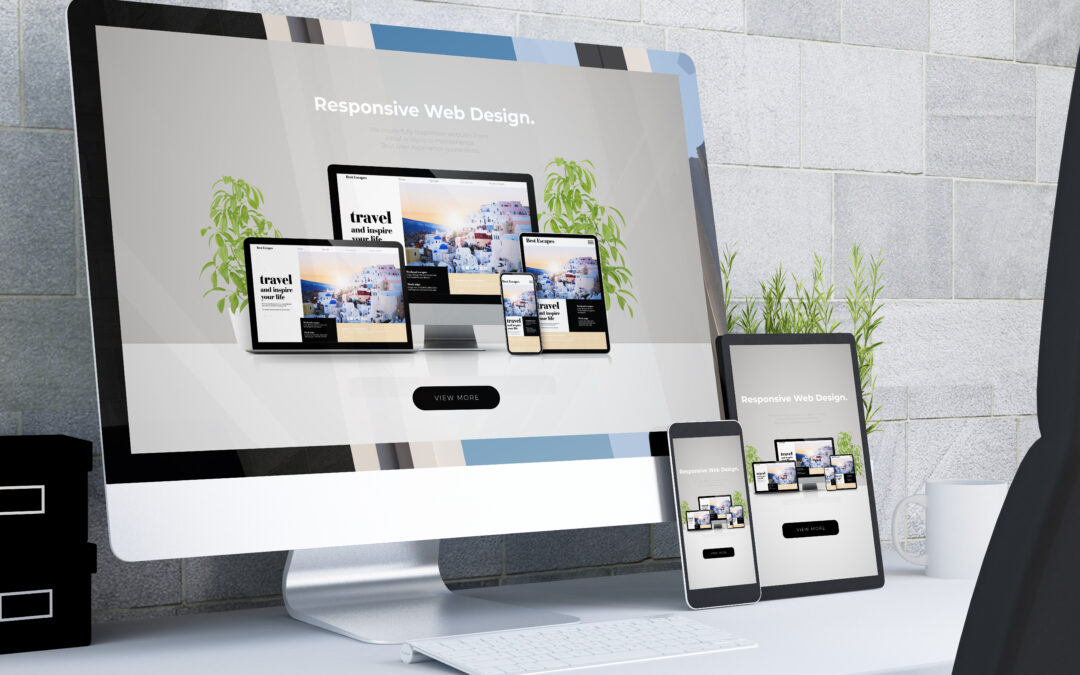In today’s digital age, having a website is no longer a luxury or a secondary consideration for businesses and individuals alike—it’s a necessity. Whether you’re a small business owner, a freelancer, or someone looking to establish a personal brand, a website is your digital front door. It’s where people first meet you, learn about what you offer, and decide if they want to engage further. Here’s why having a website is crucial.
1. First Impressions Matter
Your website often serves as the first point of contact between you and potential clients or customers. In a world where people increasingly turn to the internet to find products, services, and information, a well-designed website acts as your first impression. A professional and user-friendly site can attract visitors and establish credibility from the outset, while a poorly designed site can have the opposite effect.
2. 24/7 Availability
Unlike a physical store or office, your website is open 24/7. This constant availability means that people can learn about your products or services, make inquiries, or even complete purchases at any time, day or night. This not only caters to different time zones but also accommodates the schedules of busy customers who may prefer to browse online outside of traditional business hours.
3. Credibility and Trust
In today’s market, customers expect businesses to have an online presence. A website lends credibility to your brand. Without one, potential customers may question the legitimacy of your business. A well-maintained site with clear information, testimonials, and an active blog or news section can build trust and reassure visitors that your business is professional and reliable.
4. Marketing and Visibility
A website is a powerful marketing tool. It can serve as the hub of all your online marketing efforts. Whether you’re utilizing search engine optimization (SEO), content marketing, social media, or pay-per-click advertising, your website is where you drive traffic. Effective SEO can increase your site’s visibility on search engines, bringing in more organic traffic. Content marketing, such as blog posts and videos, can position you as an authority in your field and attract a dedicated audience.
5. Cost-Effective Marketing
Compared to traditional forms of advertising, maintaining a website is relatively cost-effective. You can reach a global audience without the high costs associated with print, radio, or TV ads. Additionally, digital marketing efforts can be easily tracked and analyzed, allowing you to see what works and refine your strategies for better results.
6. Customer Insights
A website equipped with analytics tools provides valuable data about your visitors. You can learn where your traffic is coming from, what pages are the most popular, how long visitors stay on your site, and much more. These insights can guide your business decisions, helping you understand your audience better and tailor your offerings to meet their needs.
7. Showcase Your Work
For freelancers, creatives, and businesses alike, a website is the perfect place to showcase your work. Whether it’s a portfolio of your projects, testimonials from satisfied clients, or a gallery of your products, your website can highlight your skills and achievements in a way that no other medium can. This visual and detailed display can be the difference between winning new business or being overlooked.
8. Competitive Advantage
In many industries, having a website is not just an advantage—it’s a necessity to remain competitive. Your competitors are likely online, and if you’re not, you’re missing out on potential customers. A strong online presence helps you stay relevant and compete effectively in your market.
9. Direct Communication
A website offers various ways to communicate directly with your audience. Contact forms, chatbots, email newsletters, and social media integrations make it easy for visitors to get in touch, ask questions, and receive updates. This direct line of communication can foster a stronger relationship with your audience, leading to increased loyalty and repeat business.
10. Flexibility and Growth
A website can grow and evolve with your business. Unlike printed materials, a website can be updated quickly to reflect new products, services, or changes in your business. This flexibility ensures that your online presence can adapt to market trends and business needs without the time and cost associated with traditional media updates.
In a digital world, your website is your most important marketing tool and the cornerstone of your online identity. Investing in a professional, well-maintained website is an investment in your business’s future success. Contact us to discuss we can help with your website needs.


